detail profile malcolm x
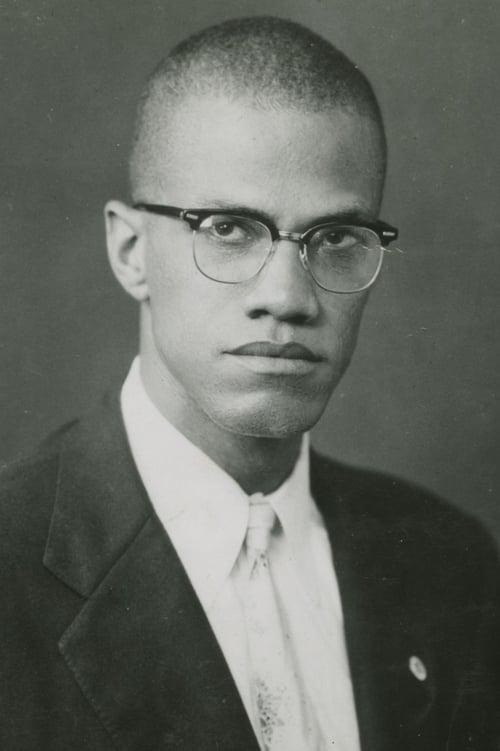
Malcolm X
ٱلْحَاجّ مَالِك ٱلشَّبَازّ
atau dikenal sebagai
Riwayat Hidup
Malcolm X ( May 19, 1925 – February 21, 1965), born Malcolm Little and also known as El-Hajj Malik El-Shabazz was an African-American Muslim minister, public speaker, and human rights activist.
To his admirers, he was a courageous advocate for the rights of African Americans, a man who indicted white America in the harshest terms for its crimes against black Americans.
His detractors accused him of preaching racism, black supremacy, antisemitism, and violence.
He has been called one of the greatest and most influential African Americans in history, and in 1998, Time named The Autobiography of Malcolm X one of the ten most influential nonfiction books of the 20th century.
Malcolm X was born in Omaha, Nebraska.
The events of his childhood, including his father's lessons concerning black pride and self-reliance, and his own experiences concerning race played a significant role in Malcolm X's adult life.
By the time he was thirteen, his father had died and his mother had been committed to a mental hospital.
After living in a series of foster homes, Malcolm X became involved in a number of criminal activities in Boston and New York City.
In 1946, Malcolm X was sentenced to eight to ten years in prison.
While in prison, Malcolm X became a member of the Nation of Islam, and after his parole in 1952 he became one of the Nation's leaders and chief spokesmen.
For nearly a dozen years he was the public face of the controversial group.
Tension between Malcolm X and Elijah Muhammad, head of the Nation of Islam, led to Malcolm X's quitting the organization in March 1964.
He subsequently traveled extensively throughout Africa and the Middle East and founded Muslim Mosque, Inc.
, a religious organization, and the secular Organization of Afro-American Unity, which advocated Pan-Africanism.
Less than a year after he left the Nation of Islam, Malcolm X was assassinated by three members of the group while giving a speech in New York.
The beliefs expressed by Malcolm X changed during his lifetime.
As a spokesman for the Nation of Islam he taught black supremacy and deified the leaders of the organization.
He also advocated the separation of black and white Americans, which put him at odds with the civil rights movement, which was working towards integration.
After he left the Nation of Islam in 1964, Malcolm X became a Sunni Muslim, made the pilgrimage to Mecca and disavowed racism, while remaining a champion of black self-determination, self defense, and human rights.
He expressed a willingness to work with civil rights leaders and described his previous position with the Nation of Islam as that of a "zombie".
Description above from the Wikipedia article Malcolm X, licensed under CC-BY-SA, full list of contributors on Wikipedia.
Info Pribadi
Peran Yang Di Mainkan Malcolm X
 Jazz and decolonization are intertwined in...
Jazz and decolonization are intertwined in...Soundtrack to a Coup d'Etat 2024
Jazz and decolonization are intertwined in a powerful narrative that recounts one of the tensest episodes of the Cold War. In 1960, the UN became the stage for a political earthquake as the struggle for independence in the Congo put the world on high alert. The newly independent nation faced its first coup d'état, orchestrated by Western forces and Belgium, which were reluctant to relinquish control over their resource-rich former colony. The US tried to divert attention by sending jazz ambassador Louis Armstrong to the African continent. In 1961, Congolese leader Patrice Lumumba was brutally assassinated, silencing a key voice in the fight against colonialism; his death was facilitated by Belgian and CIA operatives. Musicians Abbey Lincoln and Max Roach took action, denouncing imperialism and structural racism. Soviet Premier Nikita Khrushchev intensified his criticism of the US, highlighting the racial barriers that characterized American society.
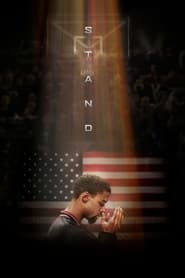 Raw and unflinching examination of the...
Raw and unflinching examination of the...Stand 2023
Raw and unflinching examination of the courageous life of basketball star and social justice activist Mahmoud Abdul-Rauf. Born Chris Jackson, he overcame tremendous adversity to reach the NBA and found his true calling when he converted to Islam. His decision not to stand for the national anthem, however, turned him from prodigy to pariah. Told candidly by Abdul-Rauf himself more than 20 years later it’s the remarkable story of one man who kept the faith and paved the way for a social justice movement.
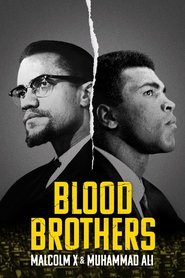 From a chance meeting to a...
From a chance meeting to a...Blood Brothers: Malcolm X & Muhammad Ali 2021
From a chance meeting to a tragic fallout, Malcolm X and Muhammad Ali's extraordinary bond cracks under the weight of distrust and shifting ideals.
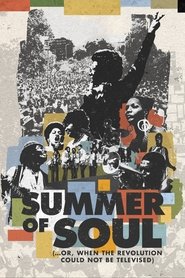 During the same summer as Woodstock...
During the same summer as Woodstock...Summer of Soul (...Or, When the Revolution Could Not Be Televised) 2021
During the same summer as Woodstock, over 300,000 people attended the Harlem Cultural Festival, celebrating African American music and culture, and promoting Black pride and unity. The footage from the festival sat in a basement, unseen for over 50 years, keeping this incredible event in America's history lost — until now.
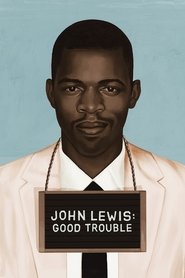 The timely biopic focuses on John...
The timely biopic focuses on John...John Lewis: Good Trouble 2020
The timely biopic focuses on John Lewis’ longstanding prominence as a civil rights champion and his continuing crusade for racial and social equality. The documentary illuminates the 80-year-old Congressman’s life as it chronicles the moments on the extraordinary journey that have shaped his place in history and make him such a galvanizing figure today as protests circle the globe. Lewis’ schedule has increased ten-fold as he has become the go-to figure for TV news shows, podcasts and newspapers and magazines from the Washington Post to Vanity Fair, commenting on and leading the way forward through today’s worldwide protests and demonstrations.
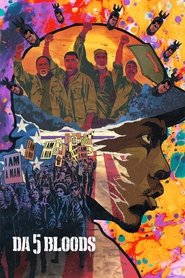 Four AfricanAmerican Vietnam veterans return to...
Four AfricanAmerican Vietnam veterans return to...Da 5 Bloods 2020
Four African-American Vietnam veterans return to Vietnam. They are in search of the remains of their fallen squad leader and the promise of buried treasure. These heroes battle forces of humanity and nature while confronted by the lasting ravages of the immorality of the Vietnam War.
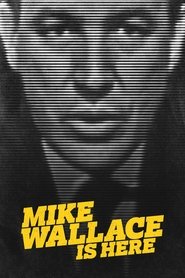 For over half a century 60 Minutes...
For over half a century 60 Minutes...Mike Wallace Is Here 2019
For over half a century, 60 Minutes' fearsome newsman Mike Wallace went head-to-head with the world's most influential figures. Relying exclusively on archival footage, the film interrogates the interrogator, tracking Wallace's storied career and troubled personal life while unpacking how broadcast journalism evolved to today’s precarious tipping point.
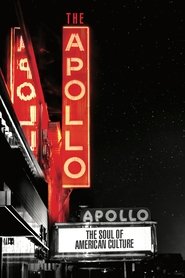 The history of New York Citys...
The history of New York Citys...The Apollo 2019
The history of New York City's Apollo Theater in Harlem is given the full treatment.
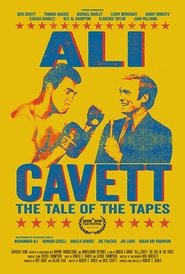 The life and times of Muhammed...
The life and times of Muhammed...Ali & Cavett: The Tale of the Tapes 2018
The life and times of Muhammed Ali shown through the lens of his numerous appearances on The Dick Cavett Show. The film features new interviews with Dick Cavett, Rev. Al Sharpton, and Larry Merchant, as well as archival material from the Cavett Show.
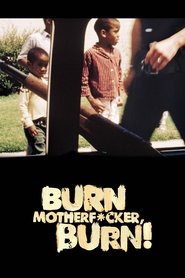 An indepth and provocative look at...
An indepth and provocative look at...Burn Motherfucker, Burn! 2017
An in-depth and provocative look at the 1992 Los Angeles riots exploring the roots of civil unrest in California and the relationship between African Americans and LAPD.
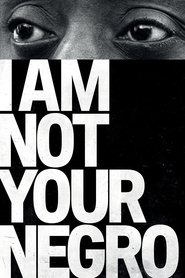 Working from the text of James...
Working from the text of James...I Am Not Your Negro 2017
Working from the text of James Baldwin’s unfinished final novel, director Raoul Peck creates a meditation on what it means to be Black in the United States.
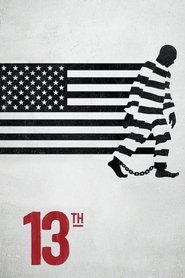 An indepth look at the prison...
An indepth look at the prison...13th 2016
An in-depth look at the prison system in the United States and how it reveals the nation's history of racial inequality.
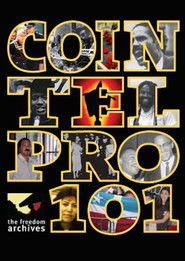 COINTELPRO 101 exposes illegal surveillance disruption and...
COINTELPRO 101 exposes illegal surveillance disruption and...COINTELPRO 101 2010
COINTELPRO 101 exposes illegal surveillance, disruption, and outright murder committed by the US government in the 1950s, 60s, and 70s. “COINTELPRO” refers to the official FBI COunter INTELigence PROgram carried out to surveil, imprison, and eliminate leaders of social justice movements and to disrupt, divide, and destroy the movements as well. Many of the government's crimes are still unknown. Through interviews with activists who experienced these abuses first-hand, with rare historical footage, the film provides an educational introduction to a period of intense repression and draws relevant lessons for the present and future.
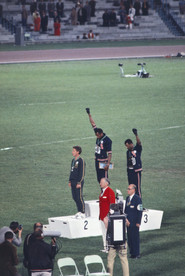 A film about one of the...
A film about one of the...Black Power Salute 2008
A film about one of the most iconic images of the 20th century, the moment when the radical spirit of the 1960s upstaged the greatest sporting event in the world. Two men made a courageous gesture that reverberated around the world, and changed their lives forever. This film is about Tommie Smith and John Carlos' protest at the 1968 Olympics.
 The story of how the radical...
The story of how the radical...A Huey P. Newton Story 2001
The story of how the radical Huey P. Newton developed the Black Panther Party based on his 10-point program for social reform.
 A tribute to the controversial black...
A tribute to the controversial black...Malcolm X 1992
A tribute to the controversial black activist and leader of the struggle for black liberation. He hit bottom during his imprisonment in the '50s, he became a Black Muslim and then a leader in the Nation of Islam. His assassination in 1965 left a legacy of self-determination and racial pride.
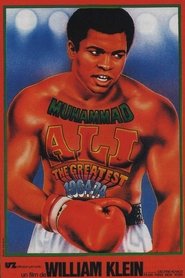 Universally accepted as a true icon...
Universally accepted as a true icon...Muhammad Ali: The Greatest 1974
Universally accepted as a true icon of the 20th century, Muhammad Ali’s phenomenal achievements spanned sport, politics and religion. One man – photographer William Klein had comprehensive access to the events that shaped Ali’s legend. In 1964, the young gregarious Cassius Clay successfully defeated the seemingly invincible Heavyweight Champion of the World Sonny Liston – the manner of Clay’s victory and his amazing persona made him an instant superstar. Through this incredible period, and Clay’s subsequent rematches with Liston, William Klein enjoyed unrivalled access top Clay’s camp – witnessing at first hand Cassius Clay becoming Muhammad Ali and angering the American people with his allegiance to Islam. Forward to Zaire 1974, and the return of Muhammad Ali to the world stage to face another invincible champion George Foreman. As Ali reclaimed the crown for a second time, Klein was ever present, capturing the full story at close quarter.
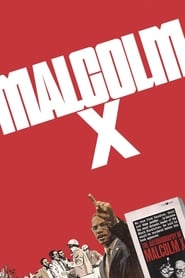 James Earl Jones narrates this fascinating...
James Earl Jones narrates this fascinating...Malcolm X 1972
James Earl Jones narrates this fascinating and moving documentary about the life of the assassinated black leader through various sources.
 The second visual album a collection...
The second visual album a collection...